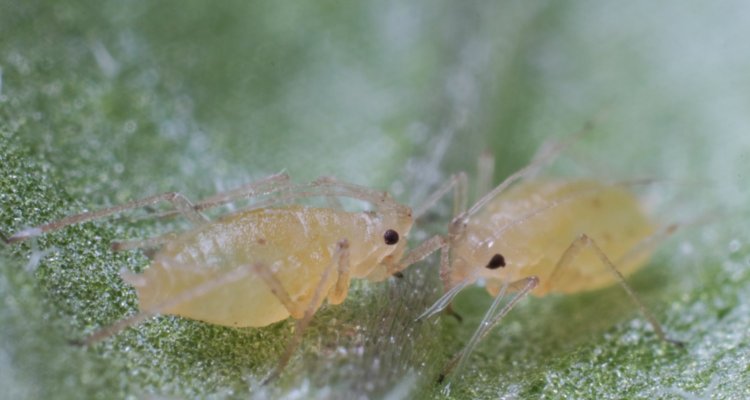
News
Vidi grant for WUR research into resistant bell pepper
WUR researcher Karen Kloth heard last week that she is to receive a Vidi grant. She will use the grant to conduct research into aphids on pepper plants, currently a major issue for bell pepper growers. The Vidi grant is one of three grants (Veni and Vici are the other two) awarded by the Talent Programme of the Dutch Research Council.
First of all, congratulations! Are you happy to have received this Vidi?
“Yes, of course!” exclaims Karen. “I heard about it last Monday, and I am really happy.”
What does your research involve?
“I am fascinated by the interaction between plants and insects, and how plants defend themselves against those insects. My main focus is the behaviour of aphids on plants, but I also study the molecular defence mechanisms of plants and the role of microbes in this. Aphids are sap-sucking insects and cause an awful lot of damage because they eat the plant’s sugary sap and excrete sticky droplets, but also because they pass on viruses to the plants.”
Your Vidi research specifically focuses on the bell pepper plant. Why?
“I chose the pepper plant, including bell peppers and spicy peppers, as a model system, because this crop is very important for the greenhouse sector and food production in general. This plant is also extremely vulnerable to aphids, while it has lost its natural resistance mechanisms due to decades of breeding.
This past year, another major problem has arisen in bell pepper cultivation: an aphid has been discovered that is resistant to a commonly used insecticide. In only one year, this aphid type has colonised almost all the bell pepper greenhouses in the Netherlands. Growers are at a loss because the other available insecticides are less effective. Moreover, to stop the accumulation of harmful substances in the environment and groundwater, the aim is to reduce the use of insecticides in Europe by 50% by 2030.”
What will you be researching?
“The primary objective is to make the plants more resistant to aphids and less dependent on insecticides. We want to increase the plant’s natural resistance. We will start with the wild relatives of the modern bell pepper. These plants still have many useful properties that are no longer found in crop varieties.
Firstly, we will study the activity of plant genes at the cellular level when an aphid penetrates the plant. Our aim is to find out which genes of the bell pepper are responsible for the defence mechanism.
Secondly, we will look at using naturally occurring soil microbes to make the bell pepper more resistant. We hope this combination of interventions will result in stronger bell pepper plants.”
How are you going to conduct your research?
“We plan to link existing methods to new technology. In our lab, we can study which cells of the plant the aphid targets. Then we will measure the response of those cells using a new technique called single cell RNA sequencing. Therein lies an exciting opportunity, because this technique will allow us to study, in great detail, which defences the plant activates during an aphid attack.
As for the second branch of our research, we will be focussing on beneficial soil microbes. These bacteria and fungi interact with the plant’s roots and provide a plant with natural resistance to above-ground pests and diseases. We have already found several examples of this phenomenon, which you can compare with the action of our gut flora, without which our immune system would not work.”
How will this Vidi grant help you to further your research?
“Thanks to this grant we can appoint three new researchers: two PhD students and one postdoctoral researcher. They will each bring their own special expertise to the project and join my existing team in the study of insect-plant-microbe interactions. We have about five years to make some real progress, which will also involve collaborations with prominent plant breeding companies Rijk Zwaan, ENZA and Keygene, and biocontrol company Biobest.
It will take more than five years to develop a market-ready product, but if we are to have solutions by 2030, we need to get started as soon as possible.”